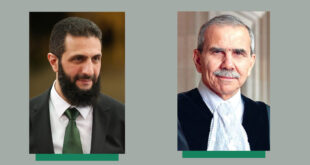Sweida, SANA- Three statues, which were found in a field to the north of al-Kafr town in southern countryside of Sweida and are present now in the National Museum of Damascus, form part of the archaeological heritage in the southern region of Syria which provides an image of the prestigious status to which the writers were enjoying during the Roman era.
In a statement to SANA, Head of Sweida Antiquities’ Department, Nasha’at Kiwan, said that the three statues of al-Kafr town that are similar in form and style, date back to the period of the Roman-Arab state for people sitting with a manuscript or book above the knees, fall within the framework of the funeral function.
He added that the text of the book which shows the funerary meaning of the represented person can place them all within the Roman funerary context.
Kiwan went on to say that the three statues, carved from basalt which date back to the second century AD , lead to many facts, the most important of which is the Greco-Roman character in their forms in terms of the formation of heads and hairs and the Roman posture where the writers sit on folded chairs and this position sometimes indicates people with a prominent social position like the rulers, for example, or the knights.
The name of al-Kufr goes back to Syriac origins and it means the land far away from the people. It is about 12 km away from the city of Sweida.
Bushra Dabin/ Mazen Eyon
 Syrian Arab News Agency S A N A
Syrian Arab News Agency S A N A

